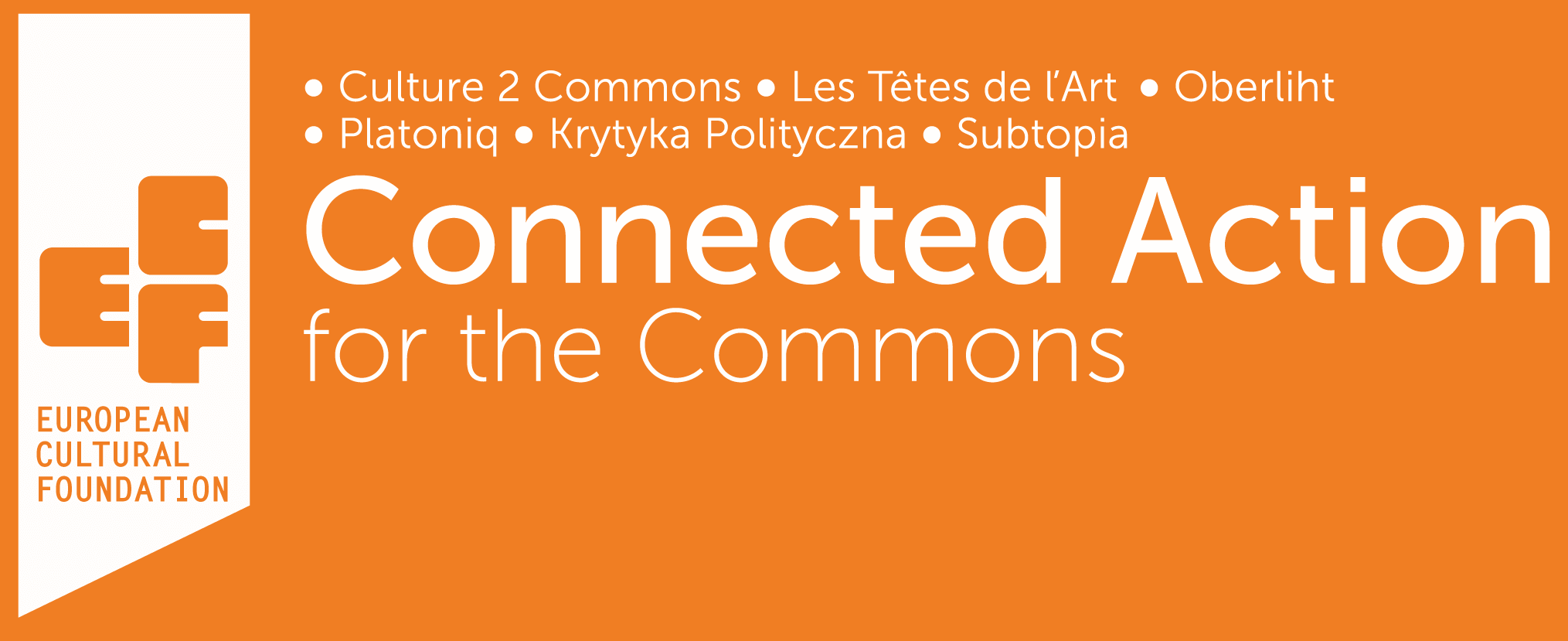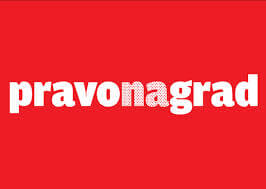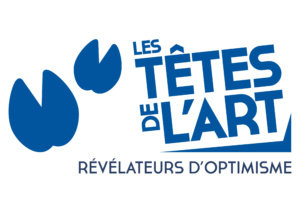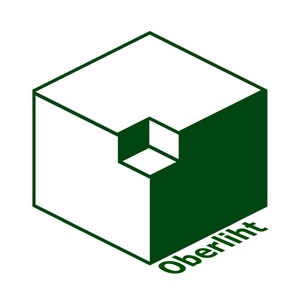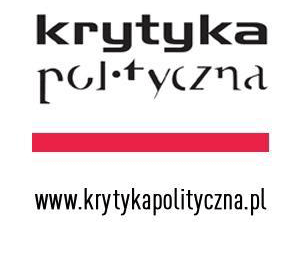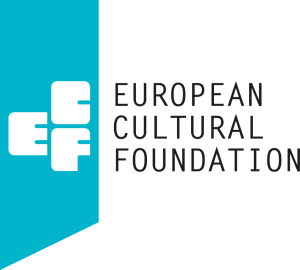CONNECTED ACTION FOR THE COMMONS: MEET THE HUBS
Meet the hubs, the partners of ECF’s Connected Action for the Commons programme: all are striving to establish and advocate for a new set of democratic best practices in Europe for cultural organisations to engage with communities and culture. Together with the hubs, ECF aims to highlight these alternative democratic models on a European level during this Idea Camp and beyond.
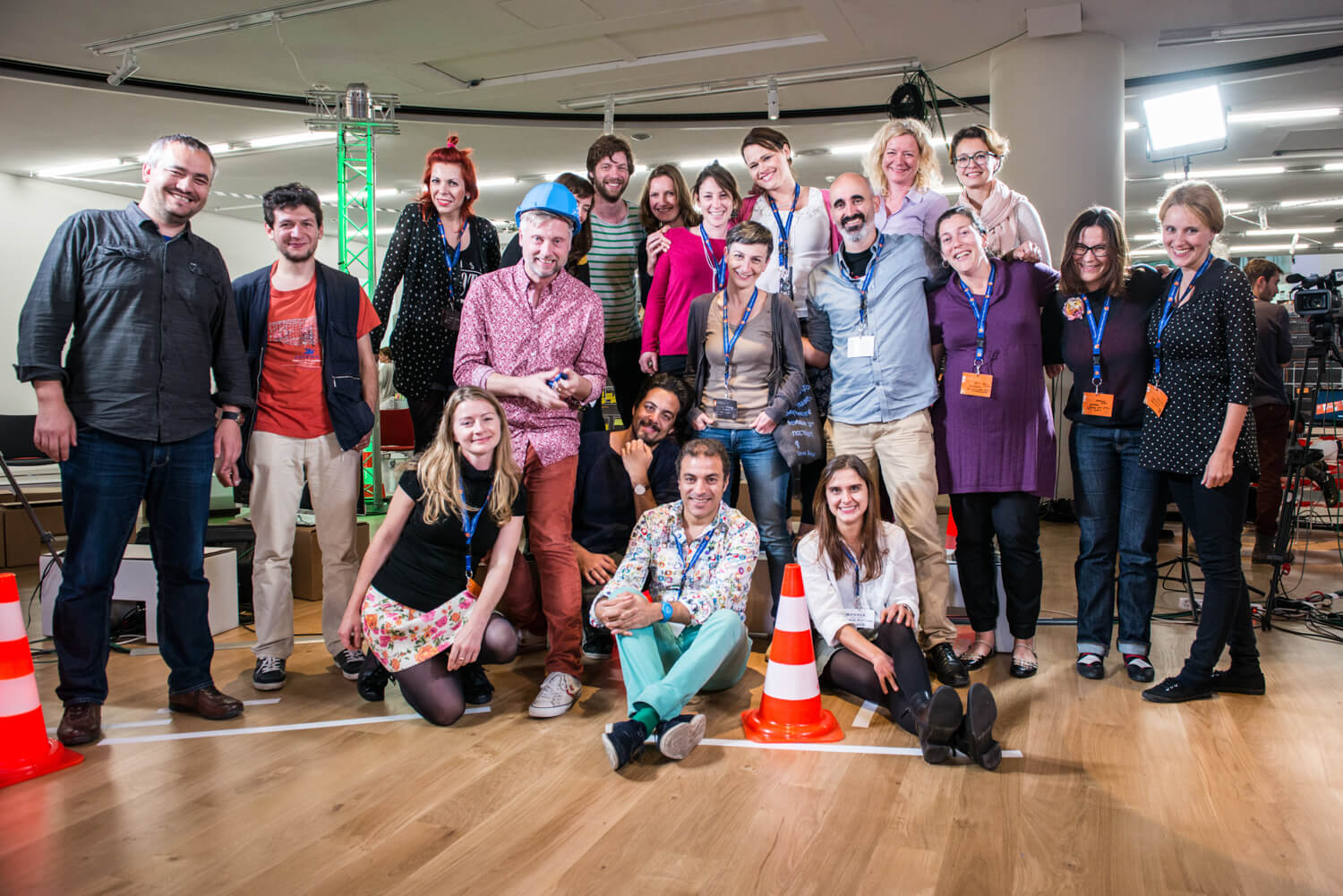
Read about the work of the hubs and watch the video interviews we made with several members of them during the Idea Camp 2015.
- Culture 2 Commons, Croatia
- Krytyka Polityczna, Poland
- Oberliht Young Artists Association, Moldova
- Platoniq, Spain
- Subtopia, Sweden
- Les Têtes de l’Art, France
CULTURE 2 COMMONS, CROATIA
Facebook profiles: Alliance Operation City | Clubture | Right to the City
With Katarina Pavić, Teodor Celakoski and Miljenka Buljević.
Culture 2 Commons comprises three organisations based in Croatia: Clubture Network, Alliance Operation City and Right to the City.
The leading principle of Culture 2 Commons is the development of intensive collaborative platforms, i.e. tactical networks, a new form of emerging socio-cultural practice with two main purposes:
- expanding the definition of cultural action
- developing new collaborative practices and models.
We deal with issues such as: public domain, social transition, hybrid institutional models of public-civil partnerships and change in the cultural system. We use methods such as: civic action, advocacy, transfer of technological practices into the cultural domain, partnership and networking. Our aim is to realise the potential of culture to reassume its proactive, dynamic and critical function in society. We believe that this can be done only by creating models of civic participation that make it possible for citizens to reclaim the power to organise and implement changes at an institutional level. Therefore, we build institutions jointly governed by organised citizens and local authorities, we create models of governance that provide partnerships between civil actors and decision-makers and we are creating sustainable solutions as structural responses to critical issues in the cultural and social sphere at local, national and international levels.
We give visibility to public issues that are seemingly not directly linked to culture by contesting, debating and suggesting viable solutions using methods such as: public protest, collecting signatures for referendum, participation in public consultations and media actions. In the last ten years we have created high visibility on issues of public infrastructure and its governance, both at local levels and nationally. We have contested privatisation of the commons and public services (e.g. monetisation of highways), manipulation of public interest through real estate development (golf used as an excuse for densification) and use of cultural heritage for the purpose of marketisation and private interests (cinema and pedestrian zone turned into shopping mall and private car park). We use this high visibility to create leverage for negotiating with local and national authorities to introduce new models of institutions and governance. In various cities in Croatia (Rijeka, Pula, Zagreb, Split, Karlovac, Dubrovnik) we have co-established cultural institutions and at the national level we have successfully advocated for the establishment of the foundation for independent culture. We have been active internationally on various topics, but especially in the South East European region where we co-create possibilities for collaboration and partnership between independent cultural organisations.
Video interview with Katarina Pavić:
KRYTYKA POLITYCZNA, POLAND
With Agnieszka Wiśniewska, Pat Kulka, Joanna Tokarz-Haertig
and Igor Stokfiszewski.
Krytyka Polityczna has been operating since 2002. We are active in three main fields: education, culture and politics. We believe these three are connected by the influence and impact they have on how society is shaped. Our aim is to fight exclusion; increase civic participation and social awareness in public life; find diagnoses and solutions to the current breakdown in social bonds and social imagination. We work through a network of local activist groups, cultural centres, a publishing house, an online Daily Opinion and the Institute for Advanced Study conducting academic research and seminar activity.
Krytyka Polityczna (KP) aims to create open and diverse public debate. We want to open the channels for topics, groups and points of view that are excluded from the main discourse, as well as empowering those who cannot represent their needs and perspectives. We strive to help remove the barriers between science, arts and politics.
We try to persuade artists to think in political terms and public figures, politicians and local authorities to treat culture as a legitimate tool for social change. We involve social activists, animators, journalists and politicians in our work, as well as encouraging writers, intellectuals and artists to discuss current political and cultural issues in our daily lives. The debate on culture is a part of a wider debate on the concept of commons. Culture is like public transport: everyone should be entitled to it, with no car owners privileged over the users of buses and trams. The ever more audible
discussions on the city and public space in Poland, on commons in Europe, have set in motion a reconfiguration of the ways in which we think. We have started to ask ourselves questions like: “Who is the city really for: only for those who can afford it or for all its inhabitants? Is it parks and public spaces for everybody that we need more of, or is it parking lots? Are we going to let the business of privatising entire swathes of our cities, only to be turned into shopping malls, go unpunished? Have streets and plazas with nothing but banks all over them anything to do with spaces for human beings?”
Go wherever you like in Europe, and talk to activists and art workers, there’ll always be someone talking about commons, goods understood as common resources, accessible property: both physical goods, as public space, and virtual ones. Artists initiate social debates with their works, activists resort to tools traditionally associated with artists.
Culture is not there to pay, to bring profit, not in the sense in which making business has to bring profit. Culture counts in a different way. It is culture’s role in creating a community, in narrating the world, in establishing relationships that matters.
The main idea of the KP network is to stay close to the problems of communities. Activities include initiatives around public policies and spatial solutions in the cities, long-term strategies and development goals, dealing with narratives about local identities, history, economic transformation, as well as cultural animation or creative artistic work. At the same time, we try to transfer and describe locally important and specific issues in a broader perspective and develop common goals.
Most of us encounter a crisis of social imagination. Opportunities like the Idea Camp let people freely present and question different solutions, combine various experiences and knowledge, risk and fail or succeed for the joy of trying to make a change and, most importantly, bring together people who care.
Video interview with Igor Stokfiszewski
OBERLIHT YOUNG ARTISTS ASSOCIATION, MOLDOVA
With Vitalie Sprinceana and Vladimir Us.
Oberliht Young Artists Association (Chișinău) was established in 2000 and since then it has supported young artists, contemporary art and civil society development in general, with an emphasis on the independent culture scene.
We observe various processes that shape our urban environment by analysing the public space transformations. We also try to participate in these processes through community building and activism.
We believe (and act!) along the following principles: that all citizens (as inhabitants, as artists, as activists) should be given a voice and initiative in solving the problems of their cities; that civic activism has a huge role to play in advancing democracy and inclusiveness in the city; that art can help Chișinău inhabitants to understand their city, its past and present, and imagine the future and themselves as part of it. In our activities we develop, involve and engage various communities.
“Zaikin Park – the people’s park” is an ambitious project aiming to revive an abandoned park in the very heart of the historical part of Chișinău. The project includes a rehabilitation of the park itself – building pedestrian alleys, installing benches, illumination, a free source of water in the middle of the park, a playground for children, sport facilities for young people and a community centre for the neighbourhood. At the same time, the project intends to build a community around the park, to involve the inhabitants in this process by giving them voice and power to decide what kind of facilities should be installed there. For this purpose we have organised various workshops, cultural activities, public discussions and other events about the development of the park. In fact, community building is for us, in this project but also in all our activities, equally as important as designing new types of infrastructure and introducing new uses for various public spaces in the city.
In a similar way we have started a project that reclaims a public square in the middle of the city that is overcrowded with parked cars, and develops a new vision for the square as a pedestrian space and an open air cultural centre, called B68 – free zone/art space.
In the process of consolidating and organising the activist and artistic communities in Chișinău that took the form of the Civic Urban Network, we stick to the principle of building with the community, rather than for the community.
Our idea is to set up a viable network of artists and civic activists that will in the future accomplish two main goals: on the one hand, making these communities stronger and able to amplify their voices, and on the other hand encouraging them to self-organise and develop better conn
Video interview with Vladimir Us
PLATONIQ, SPAIN
With Carmen Lozano Bright, María Perulero and Enric Senabre.
The urban spaces we live in – from small towns to larger cities – have been suffering from the tremendous impact of transformation in the last decades. Growth and degrowth of industries, followed by the supremacy of an economy based on services… and now, a period of transition in which sharing and caring for each other has become fundamental. Nowadays, we citizens of Europe feel a strong concern about our public spaces, along with a strong tendency to transform our collective imaginary of public space into more livable, enjoyable and social places, dedicated not only to consuming but where political and democratic practices can take place. Platoniq’s most important project to date is the open source crowdfunding and crowdsourcing platform, Goteo.org. Goteo is the only platform for crowdfunding campaigns that adds an unconditional value to the returns produced by the supporting crowd together with the project promoters: the impact must be open, replicable, traceable and socially relevant. In this sense, Goteo has created a network supported by a community of 65,000 users, including promoters, backers and related partners, weaving together projects with a strong engagement in civic impact. From journalists and audiovisual producers to architects and urban planners, from lawyers to caring citizens, together they all help to create and share open data for good, and to foster initiatives that shape our cities through active communities. Some successfully co-funded campaigns that are now part of Goteo’s heritage explain how collaboration can foster circular economy practices that raise awareness with each other, like a snowball effect. ‘Quién cobra la obra’ (Who pays for this work?) is an in-depth analysis of the public construction companies winning bids in Spain. They used digital technology applied to investigative journalism, with research articles, visualisations and an open database available for downloading and reuse. As in every Civio project (they’ve had four campaigns in Goteo), all content, data and code is open and free.
Arquitecturas Colectivas (Collective Architectures) is a network of individuals and collectives sharing an interest in the participatory construction of the urban environment. They were co-financed by 145 backers in 2013 in order to expand and improve the tools that give support to that network. This year, they’re celebrating their eighth international meeting in a rural area of Southern Extremadura.
In Spain, it has become common to hear and talk about evictions. Between 2007 and 2014 some 170 evictions were performed every day. Tens of thousands of families have lost their homes. The film ‘Cerca de tu casa’ (Close to your home) collected €124,253 to produce a fictionalised account not only of this dramatic situation, but also of the collaboration emerging around it. The raw recordings of the film will be released under copyleft license. Communication, construction, citizen auditing and replicability are elements that can be tackled, but not only by bottom-up initiatives. In Goteo, we believe in transversal engagement, and so we work to foster match funding and collaboration between institutions, citizens, entrepreneurs and civic initiatives for our cities.
Video interview with Enric Senabre
Video interview with María Perulero
SUBTOPIA, SWEDEN
With Anders Lindgren, Karin Lekberg and Ludvig Duregård.
When we look at the development or “progress” of the urban environment, we always find ourselves wanting. There’s a human dimension that’s lacking most of the time. As a cultural organisation hell bent on injecting art and culture in as many fields as possible, the city becomes a place of challenges and opportunities.
Because the city has people but doesn’t obviously facilitate relationships, it has power structures but seems to lack mechanisms for participation and it has artists without workshops and an audience (and potential audience) forced to step behind fancy doors in order to enjoy new ideas, rather than just walk to the city square.
Subtopia has been deep in urban culture and development issues for many years, ranging from outside consultations on local growth to building graffiti walls. Actually, Subtopia in itself is a sort of urban experiment where the founding idea could be “Idea Camped” into: What if we as a municipality could cluster and attract artists and educators, in order to provide cultural, financial and personal growth for passionate individuals in our suburbs.
Our work here in Alby has always been about creativity and community at its core. Among the Subtopia tenants there are social companies focusing on food as means of integration as well as a throng of circus companies. There are ballet courses for 5 year olds as well as professional development workshops in the latest film stunt gear. All this to create a place that attracts and fosters talent that will later have a positive impact on one or millions of individuals.
The city has a lot of opportunities. The density of people gives a high density of ideas that can hook up and feed into each other. These ideas and human interactions frame the future. That’s why we need to do this now. With the development of shops and commercial actors moving out of the city centres (thanks for that!), there’s an opportunity to fill that void. We would argue that the most human of all things is culture and relationships so why shouldn’t that be at the core of our cities?
Also watch this video presentation of Subtopia.
Video interview with Karin Lekberg and Anders Lindgren
LES TÊTES DE L’ART, FRANCE
With Sam Khebizi and Ina Studenroth.
The 2015 Idea Camp topic is very much linked to Les Têtes de l’Art’s daily practice and approach. We mainly work in the central districts of Marseille, marked by high unemployment rates, deficient infrastructure, cultural tensions between communities and few spaces for social interaction. Gentrification has become more and more of an issue in the last few years, relocating populations to decentralised districts and tending to make the city centre attractive for tourists and populations with higher incomes.
Since 2010, we have been organising ‘Place à l’art’ [“Art square” or “give art space”], an annual event that takes place on a public square in the city centre. The artistic participatory process we initiated in this district is intimately linked to its social and territorial context. Place à l’art aims to rethink modes of artistic intervention in public space. It places the artist at the heart of the city and the public debate.
Throughout the year we propose three types of actions: “site specific” art works by artists, taking into account the specificity of the space, participatory workshops run by professionals and mediation activities involving the population. In our experience, the combination of these activities and being on site, close to the communities and their concerns, adds to the building of a stronger feeling of local identity by improving relations between people and communities. We join forces with other organisations coming from different sectors, based in the same areas.
We also run a citizen media, “La telepart du 3ème” inviting inhabitants of all generations to produce films showing their neighbourhood and valuing citizen initiatives. These films, which would hardly have their place in commercial media channels, create social relations and make people change their views on their neighbourhood.
Another recent initiative, “Territoire collectif”, shows how the re-thinking of networks, cross-sectoral and open collaboration can be fostered by the use of digital media. For a few years, we have been observing an increase of citizen actions aiming to regain the public space, both physically and politically. Several operators from Marseille interested in participatory projects have joined in a collaborative group in order to develop a digital map, showing participatory projects in the Marseille area in the first stage and later on, in a wider area.
“Territoire collectif” aims to list existing participatory events and initiatives to make citizens able to identify those and to participate. Furthermore, the map should become a tool for organisers to identify existing local resources and create synergies between events and actors. Through our experience and through our network of artists, experts and various partners, we wish to support the Idea Makers in the development of their ideas and hopefully their imminent implementation.
Our wish is to build together a wide European network of actors and initiatives that create more awareness for the value of the commons and the need for sustainable societies.
